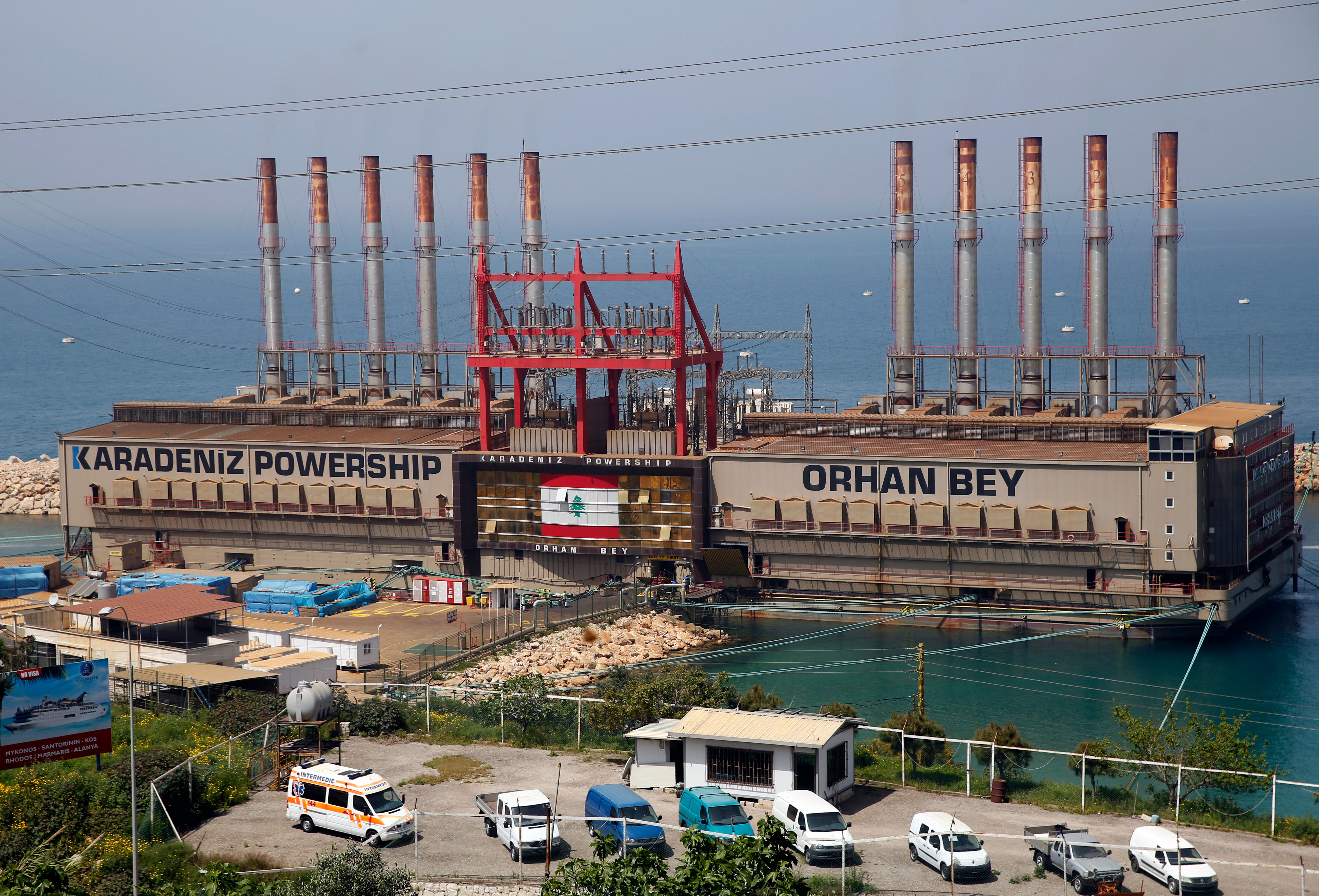Turkish firm shuts down power supply for crisis-hit Lebanon
A Turkish company that provides electricity to Lebanon from two power barges says it has shut down its operations over delayed payments

Your support helps us to tell the story
From reproductive rights to climate change to Big Tech, The Independent is on the ground when the story is developing. Whether it's investigating the financials of Elon Musk's pro-Trump PAC or producing our latest documentary, 'The A Word', which shines a light on the American women fighting for reproductive rights, we know how important it is to parse out the facts from the messaging.
At such a critical moment in US history, we need reporters on the ground. Your donation allows us to keep sending journalists to speak to both sides of the story.
The Independent is trusted by Americans across the entire political spectrum. And unlike many other quality news outlets, we choose not to lock Americans out of our reporting and analysis with paywalls. We believe quality journalism should be available to everyone, paid for by those who can afford it.
Your support makes all the difference.A Turkish company that provides electricity to Lebanon from two power barges shut down its operations on Friday over delayed payments. The move is expected to increase outages in the crisis-hit Mediterranean country.
The company Karpowership has been threatening to shut down its power supply to Lebanon for weeks and said it took the decision Friday because of 18 months of overdue payments. However the decision comes after a Lebanese prosecutor’s decision last week to seize the ships pending an investigation into corruption and graft allegations. The company has called those accusations baseless.
The company provides around 370 megawatts — about a quarter of Lebanon’s supply - through two electricity barges that have been anchored off the Lebanese coast since 2013.
“For 18 months, we have been exceedingly flexible with the state, continually supplying power without payment or a payment plan, because the country was already facing very hard times,” the Karpowership statement said.
“However, no company can operate in an environment with such direct and undue risk,” it added.
The decision is expected to decrease electricity supply by about four hours a day in a country that already suffers prolonged electricity cuts. It comes at a time the Central Bank and government are considering ending fuel subsidies, a move that would lead to a sharp increase in the price of gasoline and diesel, making even generator subscriptions unaffordable to most Lebanese.
Blackouts have been a fixture of life in this Mediterranean country since the 1975-1990 civil war, relying mostly on imported diesel for the powerful generators cartel that lights up people's houses in the absence of government electricity.
Beirut residents set their routines around three-hour cuts that determine when they can turn on their air conditioning in the summer and water boiler in the winter. Outside the capital, the outages can last up to 12 hours or more.
Successive governments have failed to agree on a permanent solution for the chronic electricity failures, largely because of profiteering, endemic corruption and lack of political will.
Lebanon has been shaken by an unprecedented economic and financial crisis that has seen the collapse of the local currency, which lost around 85% of its value, and a severe shortage of dollars — dramatically impacting the country’s ability to import basic goods.
Fuel imports are subsidized, but lack of foreign currency is making it harder to secure resources.